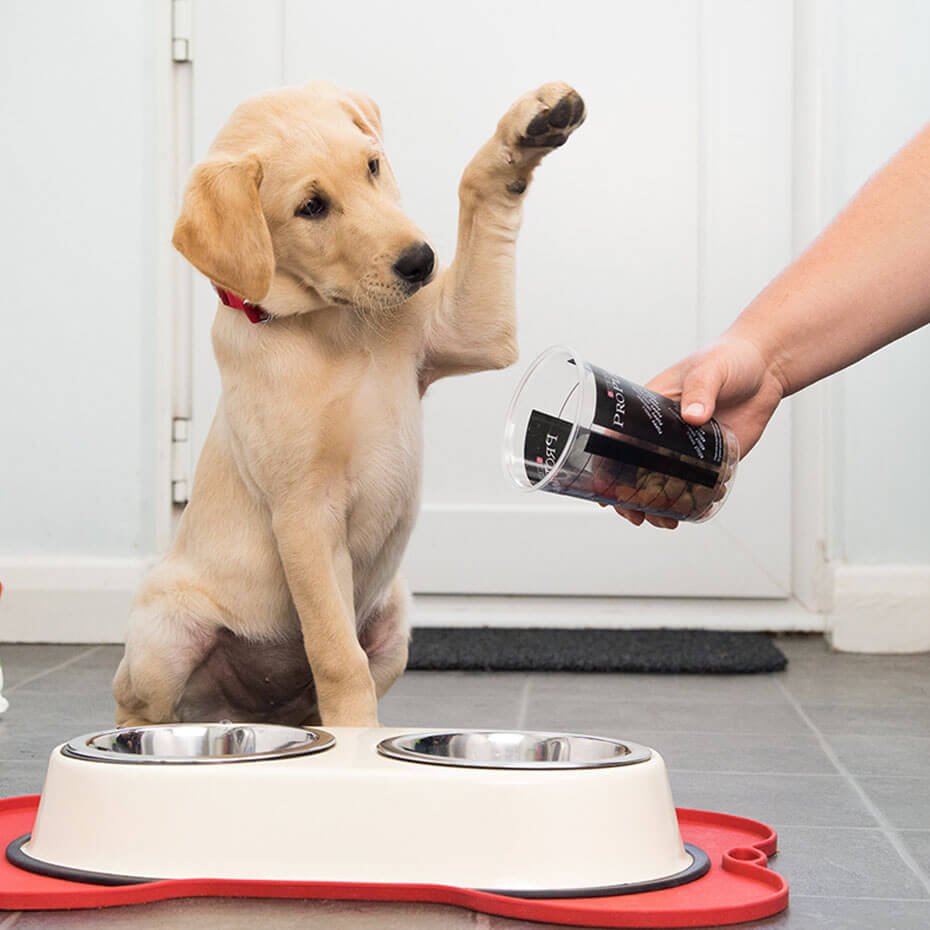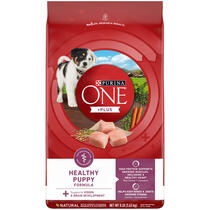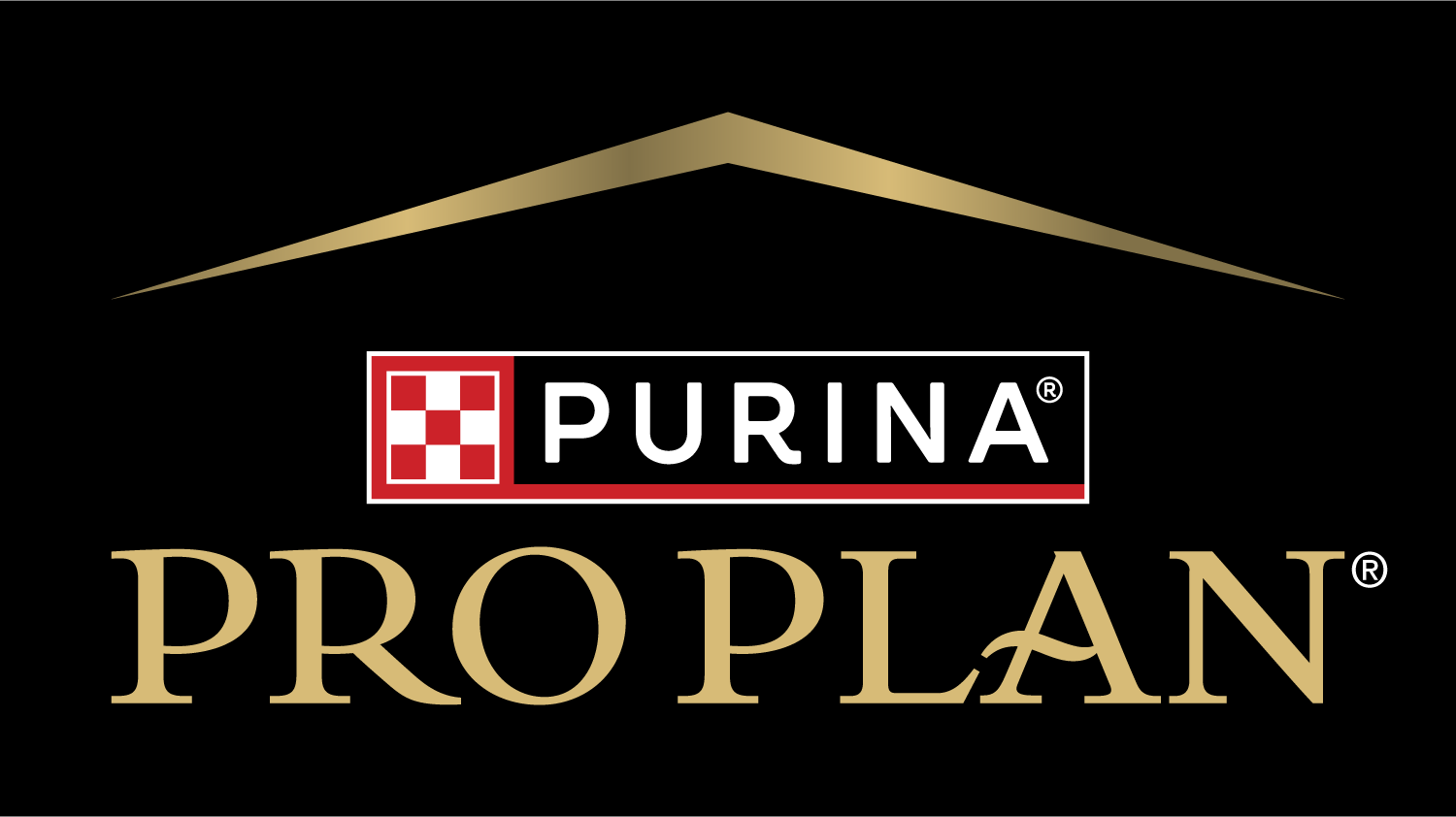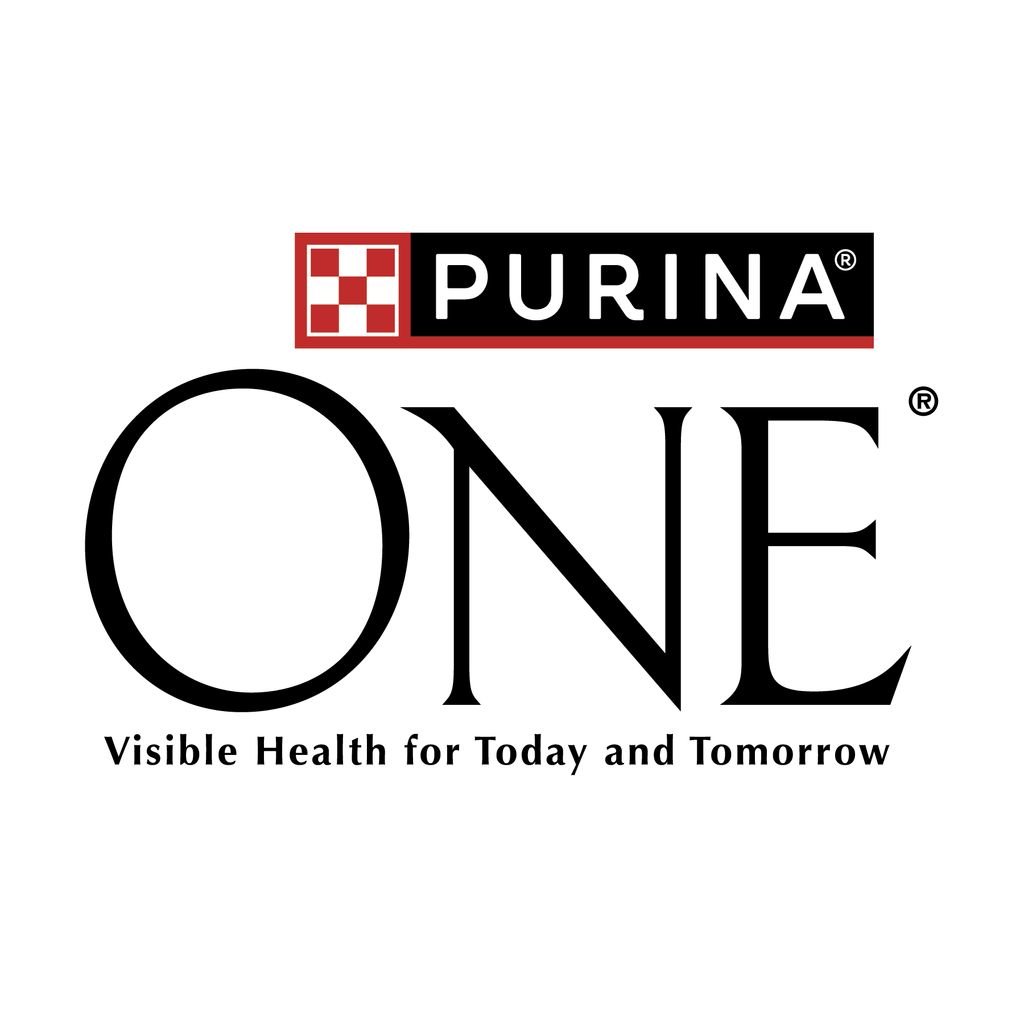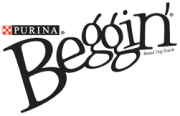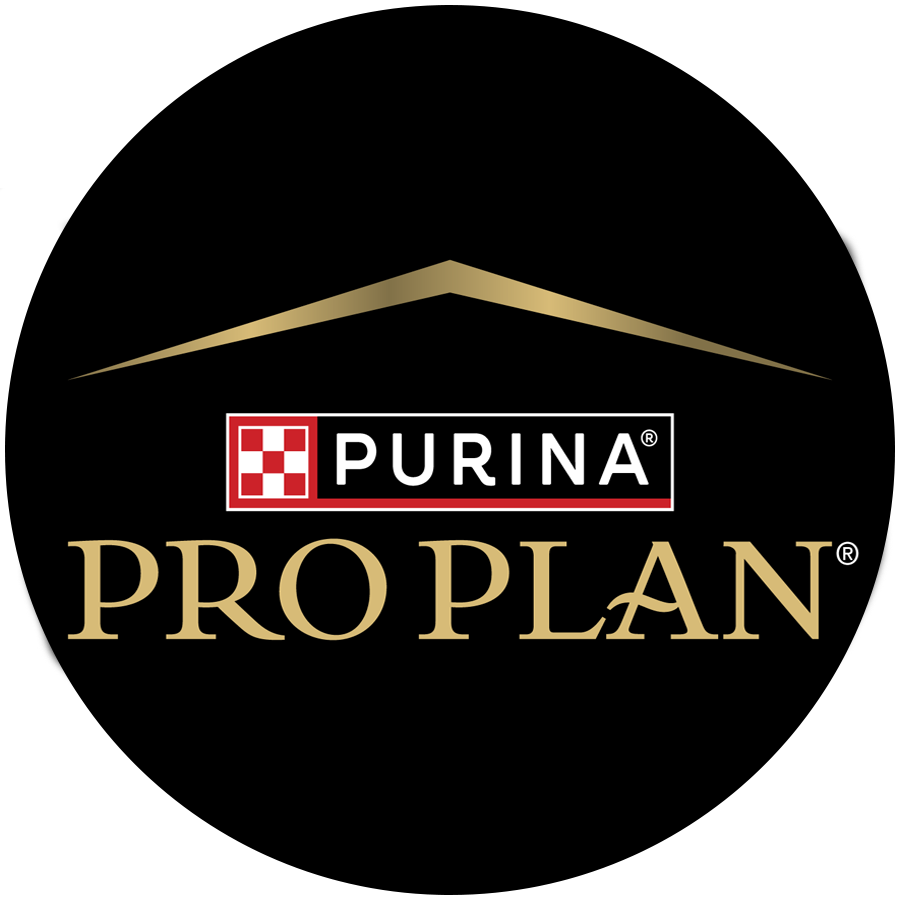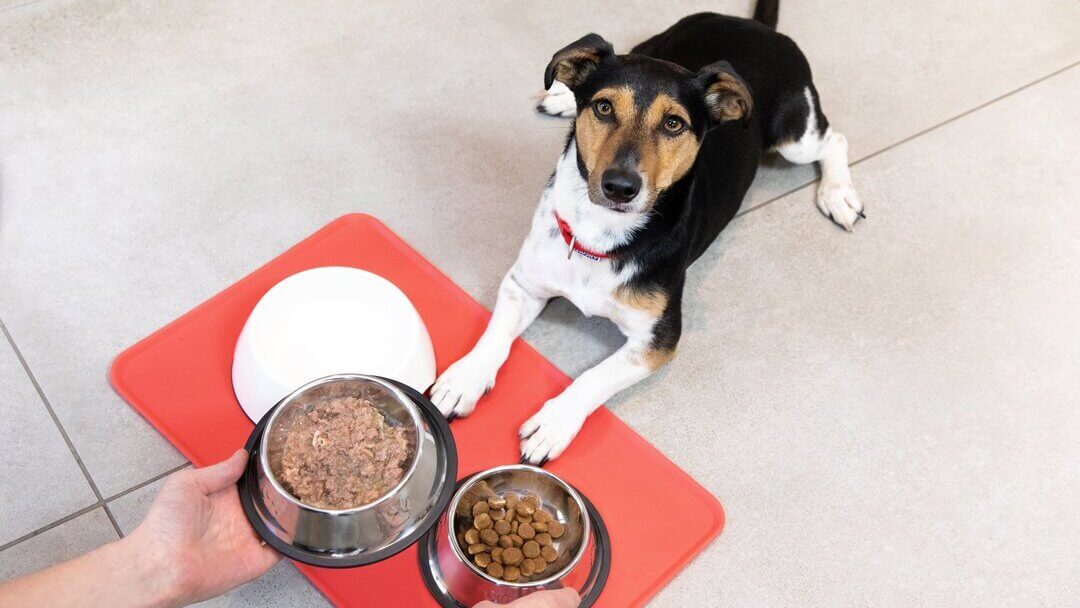

When it comes to feeding puppies, it’s not just a matter of feeding leftovers or what your adult dog is eating. Puppies need specific foods that cater to their growing bodies.
The first year of life is critical in your puppy’s development. Your puppy has a lot of growing to do and needs a well balanced diet. At certain times during their growth and development, a puppy requires up to twice the amount of some nutrients, and up to three times the calories per kilogram of bodyweight, of that of an adult dog.
As you feed your puppy, you need to supply all the body building nutrients it requires to grow and develop: protein for strong muscles, water for hydration, calcium for strong bones and teeth, iron for healthy blood and enough calories for all the energy a puppy burns. This is easily accomplished when you feed a commercially prepared puppy formula that is complete and balanced.

Choosing the Best Puppy Food
CHOOSING FOOD FOR YOUR PUPPY
Give your puppy the healthiest start in life by choosing the best puppy food for him.
DOG FOOD FOR THOUGHT
Even before your puppy comes home, you should decide on a puppy food. It has to be healthy and tasty, and it also needs to fit your lifestyle.
DOG FOOD NUTRITIONAL TIPS
• Read the label for nutritional claims.
• Look for life stage claims. For example, foods appropriate for puppies should state they are complete and balanced for “growth” or “all life stages”.
NOTE: Foods balanced for “the maintenance of an adult dog” won’t give a puppy the correct nutrition for their growing bodies.
TYPES OF PUPPY FOOD
There is a wide range of commercially produced puppy food available in a variety of styles. Choose the one that fits your needs, your puppy’s needs and your budget. Here are some possibilities:
• Dry food is an extremely popular choice for puppy owners. It tastes good, is easy to store, and has more nutrition per kilogram on a dry matter basis than other types. It can also help keep teeth clean.
• Dry food with tender morsels is increasing in popularity. Moist chunks are enjoyable for your puppy to eat, meaning they’ll be more likely to eat all their food and get all the nutrition they need.
• Canned food (sometimes known as ‘wet food’) is the most palatable for your puppy. However, due to its high water content, it contains less nutrition per kilogram of food, so you may need to feed your puppy a higher volume. Also, watch for dental issues – soft foods don’t scrape the teeth like dry diets.
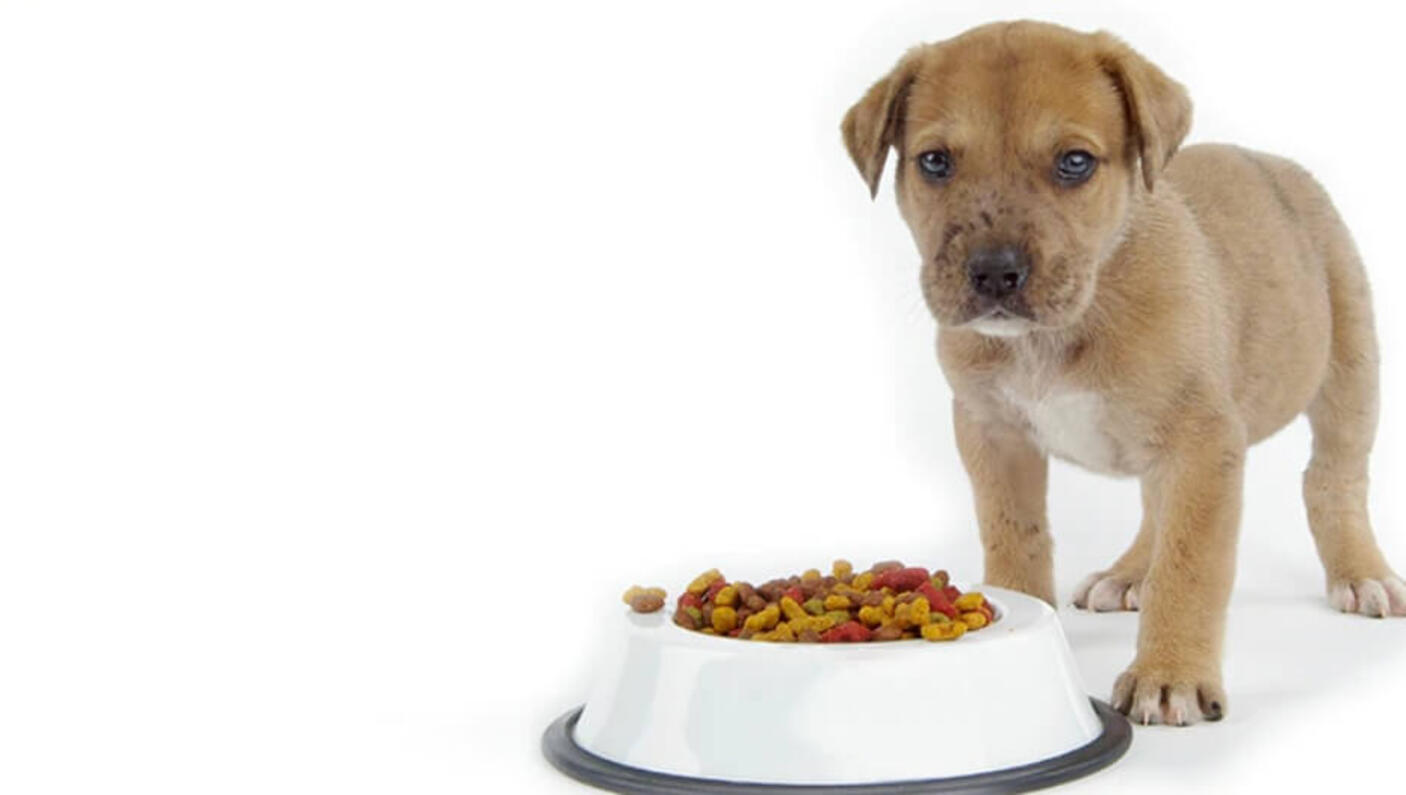
COMPARING PUPPY FOOD
As you would when buying food for yourself or your family, always read the packaging to see the levels of calories, protein, fat and other nutrients in the puppy food you’re considering. You can then compare these levels – as long as you only do so between foods of the same type (so dry to dry or canned to canned, not dry to canned).
For example, all canned food will have less protein per kilogram or cup than dry food, because canned foods contain much more moisture. In comparing canned food with dry food, check the daily feeding amount of each. You will be feeding your puppy more of the canned food per day.
THE KEY POINT
Use the nutritional information on the package to choose a food that is appropriate for your puppy. More or less of a particular nutrient may be good or it may not – too much calcium can lead to bone problems, for instance.
OTHER CONSIDERATIONS WHEN CHOOSING PUPPY FOOD
Since this is a decision you want to make once and stick with until your puppy reaches adulthood, you should be well-informed on all aspects of feeding puppies. Making sure puppies are fed well is one of the most important ways to keep them happy and healthy.
If you would like more help selecting food for your puppy, contact our PetCare Advisors who can recommend a product to suit your needs.

